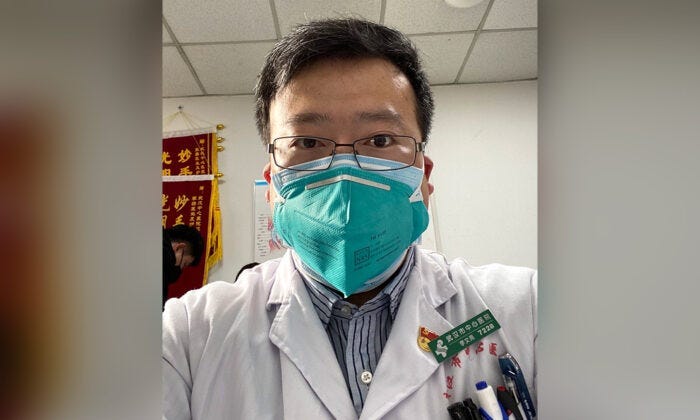
Dr. Li Wenliang, one of the first physicians to go public about his concerns over a SARS-like virus, had died.
Thursday, the World Health Organization (WHO) said Li had died, even tweeting: “We are deeply saddened by the passing of Dr. Li Wenliang. We all need to celebrate work that he did" on the virus. But, then it was reported that Li had not died, but was in critical condition. By Thursday afternoon, it was reported that in fact, Li had died.
Going back to the end of December, Li told his medical school alumni group via social media that seven patients who'd all visited a local seafood market were being quarantined in the hospital in Wuhan, China where he worked.
Li, warned family and friends about a coronavirus -- a large family of viruses that includes severe acute respiratory syndrome (SARS).
Within hours, the 34-year-old ophthalmologist was targeted by police for attempting to blow the whistle on the potential outbreak.
Li's post from January sparked outrage in China, toward a government known for its state censorship.
By February, Li contracted the illness,
On the same day in January when Li messaged his friends, the Wuhan Municipal Health Commission, sent word to local medical institutions that several patients from the Huanan Seafood Wholesale Market had an “unknown pneumonia," but the notice came with a warning: “Any organizations or individuals are not allowed to release treatment information to the public without authorization.”
Li returned to treating patients, but on January 10, he fell ill with a high fever and a serious cough. Two days later, he was admitted to the intensive care unit and given oxygen. By Feb. 1 he was officially diagnosed with coronavirus.
In an interview with CCTV on Jan. 27, Wuhan mayor Zhou Xianwang admitted his government did not disclose information on the coronavirus “in a timely fashion.”
